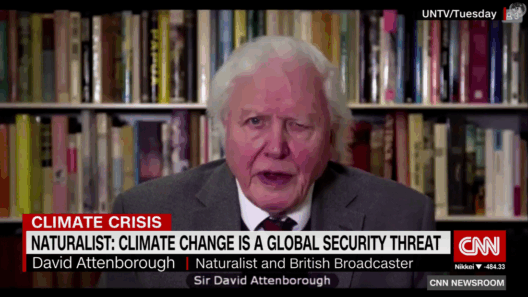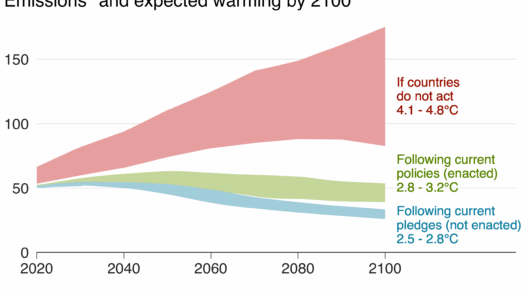In recent years, the discourse surrounding climate change has intensified, intersecting with media portrayals and public perception. One notable aspect of this phenomenon involves the stance of various news organizations, particularly Fox News, and their meteorologists regarding the concept of ‘global warming.’ The juxtaposition of weather reporting and climate science raises an array of questions. Do Fox News weathermen genuinely believe in climate change? An exploration of this query unveils a complex tapestry of personal beliefs, ideological undercurrents, and the broader implications on public understanding of environmental issues.
To initiate this examination, it’s imperative to grasp the foundational aspects of climate change and global warming. The National Oceanic and Atmospheric Administration (NOAA) defines climate change as long-term alterations in temperature and typical weather patterns. Recent scientific inquiries have indicated a consensus among climate scientists regarding the reality of human-induced global warming, driven primarily by greenhouse gas emissions. The salient question then emerges: Why does the narrative surrounding climate change differ significantly across various platforms, especially within specific media outlets such as Fox News?
The political affiliations often observed within the media landscape provide context for understanding divergent views. Fox News has been frequently criticized for disseminating skepticism regarding climate change. Some weathermen affiliated with this network have indeed expressed skepticism or downplayed the urgency associated with global warming. This inclination to adhere to a narrative of doubt is not only reflective of personal convictions but also illustrates a broader societal polarization concerning environmental issues.
Considering the meteorologists within this context, it becomes essential to recognize the nuanced landscape in which they operate. Many weathermen possess advanced degrees in atmospheric science, meteorology, or related fields. Their scientific training equips them with knowledge regarding weather phenomena, but whether this translates into belief in climate change is another matter altogether. Some may compartmentalize their scientific expertise, choosing to remain neutral or skeptical in their public personas.
This reluctance to embrace climate science could stem from various factors. For one, a significant portion of the audience represented by Fox News subscribes to ideologies that reject climate change narratives. Meteorologists may adjust their rhetoric to align with viewer expectations and preferences, prioritizing job security and audience ratings over scientific advocacy. Additionally, the cultural dimension cannot be overlooked; those raised in environments where climate skepticism prevails may find it challenging to shift their perspectives, even when confronted with overwhelming evidence.
Moreover, the commercial pressures of media outlets play a pivotal role in steering content. Advertisements and sponsorships often hinge on maintaining a specific viewer base. In a climate where climate change has become a politically charged issue, some weathermen may find themselves treading carefully to avoid alienating their audience. This tension between adherence to scientific truths and the necessity to cater to audience preferences is indicative of a broader conflict within the media.
Interestingly, not all meteorologists working with Fox News uniformly espouse skepticism regarding climate change. A minority may voice concerns about environmental issues and advocate for a more proactive approach to confronting global warming. This divergence often leads to internal conflicts, wherein weathermen find themselves at odds with the overarching narrative promoted by the network. It highlights the complexity of individual belief systems and illustrates that media persons can harbor differing views within the same institutional framework.
Transgressing the realm of individual beliefs, it becomes increasingly vital to comprehend the ramifications of distorted narratives on public understanding of climate change. The portrayal of weathermen as skeptical figures can perpetuate a cycle of misinformation, consequently influencing citizen beliefs and behaviors towards environmental issues. Consequently, this engenders a detrimental ripple effect on public policy and climate action initiatives.
Furthermore, the psychological dynamics surrounding information acceptance also warrant discussion. Individuals frequently exhibit confirmation bias, favoring information that aligns with their pre-existing beliefs while dismissing contradictory evidence. In this respect, the skeptical voices from prominent media figures like weathermen may resonate more vigorously with audiences already inclined to believe in climate change denial. The role of media, therefore, is not merely informative but sculptive; it shapes societal perceptions and can either reinforce or dismantle established misconceptions.
Beyond the societal implications, the role of education emerges as a potential remedy to combat misinformation. By encouraging critical engagement with scientific data and promoting an understanding of climate change through comprehensive educational frameworks, it becomes feasible to alter public perception over time. Furthermore, fostering dialogue that transcends ideological boundaries may create opportunities for broader consensus on the necessity of addressing global warming.
Ultimately, the inquiry into whether Fox News weathermen believe in global warming unveils a multifaceted reality, characterized by personal beliefs, contextual pressures, and the shaping of public consciousness. The diversity of opinion among individual weathermen reflects the complexities of navigating a contentious issue within a politically charged landscape. As the climate crisis continues to escalate, the portrayal of climate science within popular media remains a vital area of scrutiny. It calls for a collective introspection regarding the roles various actors play in the navigation of environmental narratives, advancing the dialogue, and fostering informed citizenry.
In conclusion, while the question regarding the beliefs of Fox News weathermen about global warming can yield a spectrum of responses, it inevitably points towards a larger conversation about the intersection of media, science, and public perception. Understanding the ramifications of these dynamics will be crucial as society grapples with the existential challenges presented by climate change in the coming years.







